Kia ora,
There have been a number of stories involving social workers recently in the media, some of which have raised issues that are challenging and difficult.
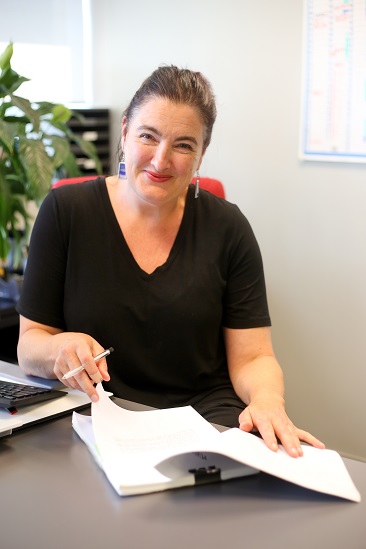
As the regulator we work to enhance the professionalism of social workers, and many of the recent stories have highlighted the challenges for social workers and professional identity. We are not the regulator of the employers and do not have oversight of their systems and the way they operate but we believe it is important that registered social workers can work on a day-to-day basis in a way that they can uphold the SWRB Code of Conduct.
As the regulator, the SWRB wants to know that social workers can practise safely, with a broader focus that the outcome ensures public safety.
In the event of a complaint being made to the SWRB, we ensure that both the registered social worker and complainant is treated with respect, is informed, and is able to present their position, and that the way that is done is transparent. You can find out more about that process here.
Sarah Clark, Chief Executive, SWRB
What the SWRB does
You may not be familiar with what the SWRB does apart from knowing that we are the regulator. While we are tasked with implementing the changes to the Social Workers Registration Act, there is also a broad range of work we undertake, which includes:
- Registering social workers and holding them accountable
- Managing a complaints & disciplinary process, ie professional standards
- Providing regulatory and practice advice
- Setting standards for social work degrees
- Providing educators with guidance
- Ensuring social workers engage in CPD and supervision
- Developing competence standards
- Developing policy, including Scope of Practice
- Undertaking consultation, submissions and holding Board meetings
With the changes to the legislation, we are expecting there to be many more social workers registering and all the processing that goes with that, and an increase in the professional standards work. We’ll also be collaborating with the sector on developing policy, which will include developing competence standards and a fit for purpose Scope of Practice.
Minister hosts event to mark changes
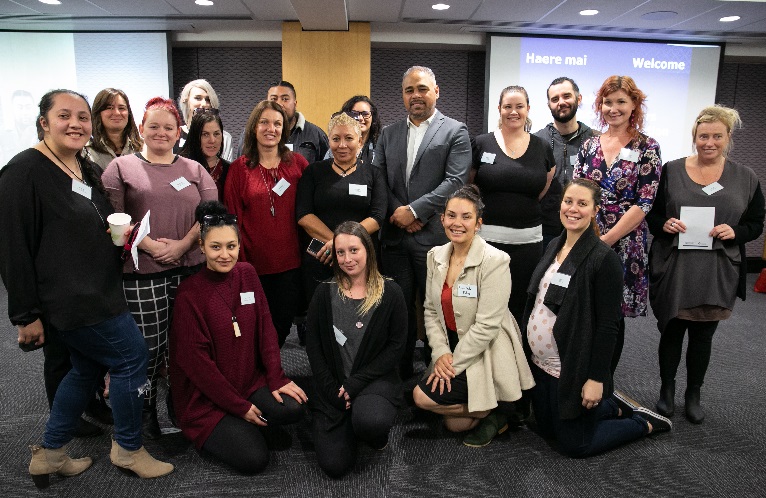
A group of social workers and social work students were present at an event to mark the changes to the Social Workers Registration Act, which were passed by Parliament earlier this year.
Minister Carmel Sepuloni, who was strongly supportive of updating the Act which included the shift to mandatory registration of social workers, and had planned to host the event, was laid low and sadly unable to attend.
In her place, Minister Peeni Henare (pictured above with students) stepped in and spoke about the importance of social work to strengthening whanau and communities.
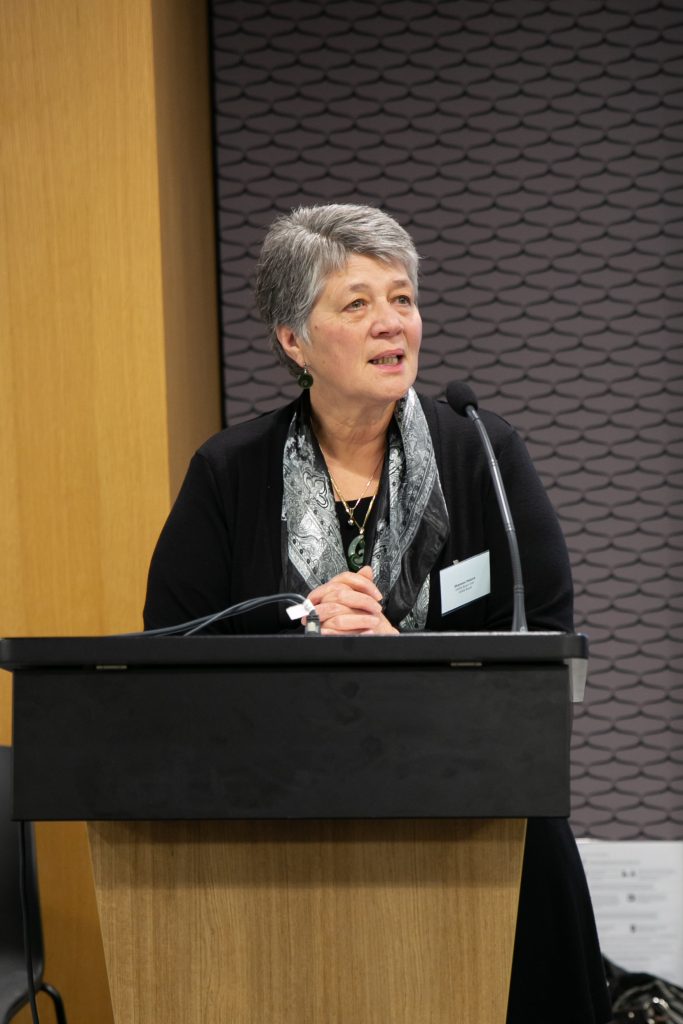
The SWRB Board chair Shannon Pakura, (pictured right) who lobbied for many years for the changes and was present when Parliament made the historic amendments, paid recognition to all the social workers who “worked long and hard to see the amendments become law. My thanks to you for your time, effort and unwavering persistence”.
Sally Dalhousie, the ANZASW president, said the mandatory registration of social workers moves the sector to new heights because the profession will be validated and mandated. She said the ‘fit for purpose’ legislation was a result of collaboration with the sector, it was “no mean feat, and we are incredibly proud of this significant accomplishment”.
The changes were also applauded by the International Federation of Social Workers. Its Asia-Pacific president, New Zealander Rose Henderson, was a speaker at the event and commented that mandatory registration would bring the profession into line with other countries and other professions.
Rose then paid tribute to the work done by social workers, “It’s important to acknowledge the value and contribution social workers make every day in the lives of New Zealanders. We know that often these contributions occur without fanfare or appreciation”.
We’re delighted to let you know that Rose is joining the SWRB Board (more on that below).
Workforce survey – how it helps you
One of the reasons we undertook our workforce survey last year and we have a survey open this year is to gather information on the state of the workforce, including salaries.
This information has been used by the ANZASW, the PSA, and the community and voluntary sector to bring to the Government’s attention the inequity faced by some social workers, particularly those in the community and voluntary sector.
We would urge you to fill out this year’s workforce survey so there is a better understanding of the issues faced by frontline social workers, and what work needs to be done. The information is collected anonymously and is not linked to your registration number.
As the regulator, we don’t have a role when it comes to negotiating contracts or salaries but we can help bring the evidence to light.
The survey should take no more than 10 minutes of your time.
CPD logs – highlighting changes
The shift to mandatory registration is only one of the changes under the legislation which are being implemented by the SWRB.
Our profession has been recognised and with this comes a new set of expectations, one of which is our professional responsibility to constantly maintain our CPD Logs and keep a focus on the ten core competence standards.
CPD is life-long learning enhancing your professional development, challenging your preconceptions, and achieving good outcomes for the people you work with.
Changes to CPD this year include the following:
- Your CPD year will now be aligned to the Practising Certificate year, ie July 2018 – June 2019.
- We are introducing a CPD audit from 1 February 2020, when 5% of all registered social workers will be asked to submit their CPD Logs for the July 2018-June 2019 year.
The CPD log is expected to show that you have:
- A 12-month plan of CPD activities connected to a selection of the ten core competencies
- Completed a minimum of 20 hours
- Critically reflected on your CPD learning and the relevance of the learning for your practice
- Utilised at least two types of CPD, at least one of which should involve engagement with others
- A sign-off from your supervisor
Changes from July 2019
We are also introducing a new requirement for next year’s logs, from July 2019 to July 2020.
- Your CPD log will need to show evidence of your competence to work with Māori. This might include education and training that is specifically focused on competence to work with Māori , or addresses work with Māori in its content.
You can find out more about CPD here. We will be looking at new ways to measure and maintain competence and professional engagement over the following months.
Andrew Thompson
Principal Advisor Social Work
SWRB Board changes
Lisa-Marie King (pictured right) has stepped down from the SWRB Board after serving on the Board since May 2015.
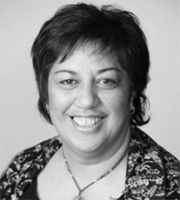
With her strong interest in the development of kaupapa Māori and bicultural social work, indigenous models of practice, supervision and education, Lisa-Marie has provided the Board with a perspective of the issues and challenges faced by Māori students and social workers.
Lisa-Marie has provided a strong voice, helping the Board test and question, with a particular focus on lifting the organisation’s responsiveness to Māori. She was instrumental in the development of the Kaitiakitanga Framework, and the establishment of Te Komiti Māori, of which she was chair.
We have appreciated Lisa-Marie’s contribution to the Board and wish her all the best in her future endeavours.
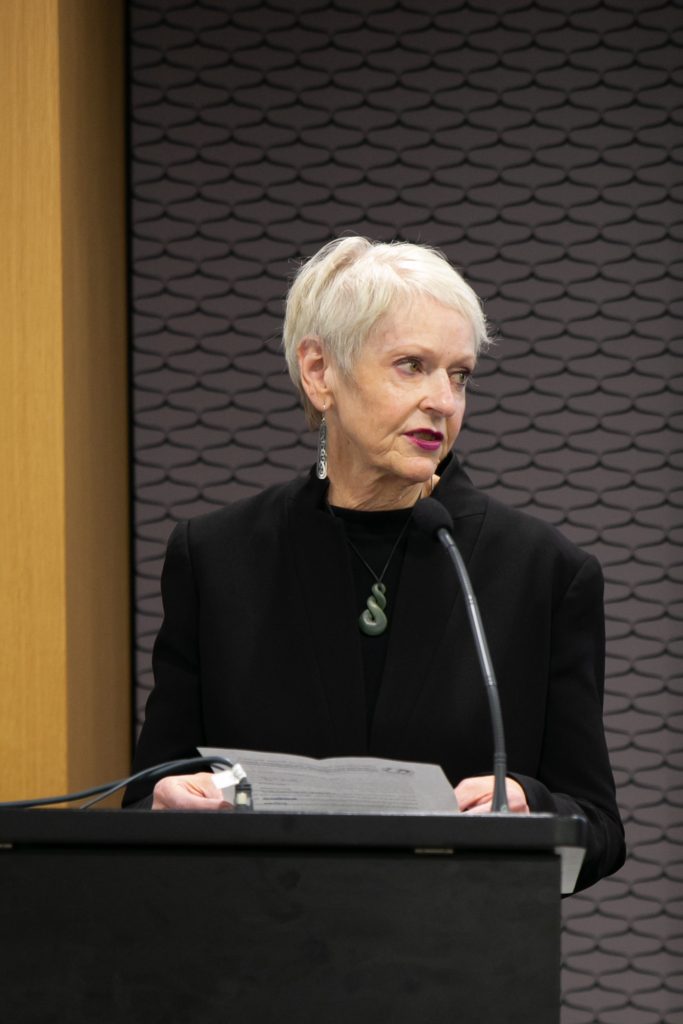
With Lisa-Marie moving on, we are delighted to welcome Rose Henderson (pictured right) to the SWRB Board following her appointment by Minister Carmel Sepuloni.
Rose has a long history in the social work profession. She began as a social worker in Invercargill in the late 1970s and found time, amidst a busy family life, to establish and co-ordinate the Invercargill Women’s refuge. Rose then made the shift north to Christchurch and into the mental health area, working as a social work case manager, a clinical co-ordinator and as a Director of Allied Health, including being the Clinical Lead for Recovery and Wellbeing following the 2016 earthquakes.
Rose was also a former President of the ANZASW, from 2003 to 2009, before moving on to her international roles. Currently, Rose is the President of the Asia-Pacific region of the International Federation of Social Workers (IFSW).
Rose’s depth of knowledge in employer relations and experience of representing social workers at a national and international level will add welcome expertise to the Board.
Change of address
The
SWRB has recently moved offices to :
Level 7, 110 Featherston Street,
Wellington 6011
Postal
Address:
Social Workers Registration Board
PO Box 3452
Wellington Central
Wellington 6140

